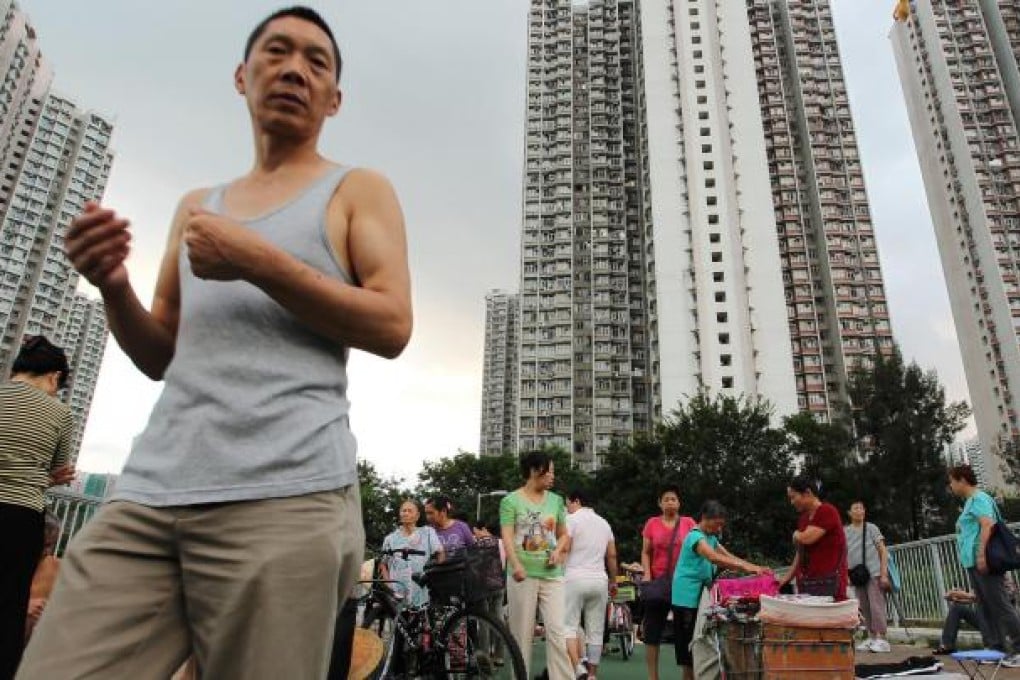Tin Shui Wai, where hawkers help brighten up grim lives
Residents of isolated satellite town defy the law to bring affordable goods and a spot of daily pleasure to some of the city's poorest people

Tin Shui Wai's name has a serene meaning: "town of sky and water". In reality, the sky is obscured by cookie cutter public housing blocks and water flows only in a drainage nullah.
But that waterway runs beside a pocket of neighbourly kindness in the northwestern New Territories satellite town. On its banks stand the dawn markets, where Tin Shui Wai's notoriously cash-strapped residents sell small amounts of fresh food and daily essentials.
These unauthorised markets have become a morning ritual for residents to mingle and gather, but they are illegal: none of the hawkers is licensed. At any moment, the hawkers are ready to jau gwei - slang for running away from officers of the Food and Environmental Hygiene Department, who are out to nab them.
"When the officers chase you, they sprint as fast as [Chinese Olympic hurdler] Liu Xiang ," hawker Liu Chiu-sum, a 62-year-old egg seller, told the South China Morning Post.
As many as 80 stalls spring up in this spot from 5am to 10am every day, then disappear without a trace whenever government officers appear. If arrested, hawkers face a penalty of about HK$450 and the loss of their stock. "When the officers attack, I just leave my goods and run," said Liu.
The market is an oasis in the isolated community, which has become notorious for its domestic violence, murders and suicides. The town is a figurative prison, rife with cross-generational poverty and geographically isolated: a round-trip bus ride to Central takes three hours and costs HK$42.80.